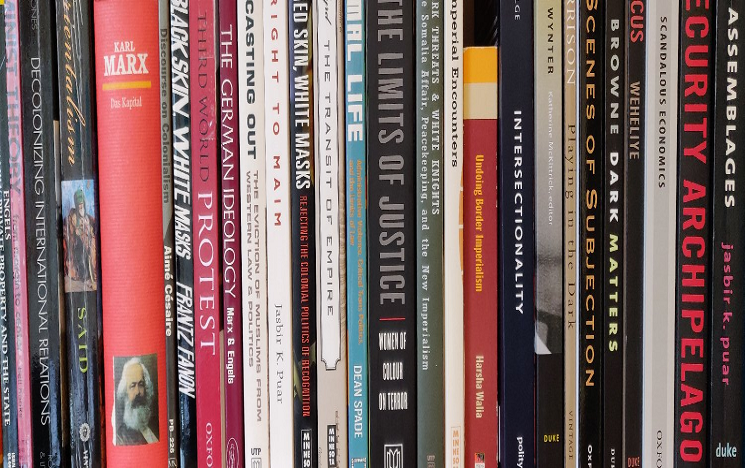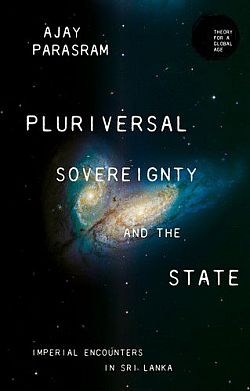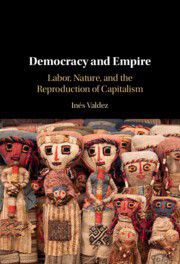Sussex International Theory Prize (book award)

Book award
In 2011, the Centre for Advanced International Theory (CAIT) was established by the Department of International Relations within the School of Global Studies of the University of Sussex. The core mission of the Centre is to support and disseminate innovative fundamental research in international theory, free of the requirement for direct policy.
Annually, we award the Sussex International Theory Prize to honour the best piece of research in International Relations published in book from the year prior.
Eligibility
The work should be in International Relations, broadly conceived – including sub-fields. The work must have been published in the year prior to the award: judged by copyright date. Nominations should be for research monographs only: edited volumes, textbooks, articles and book chapters are not eligible
Submission/Nomination
The award is made annually on the basis of nominations by individuals, publishers and peers. Nominations should take the form of a statement of less than 200 words on why the work could be considered the best piece of innovative theoretical research in International Relations from the previous year. Nominators (including publishers) are limited to one submission
Prize
The recipient will be invited to present their research in a Public Prize Lecture at the University of Sussex. The winner receives £150 worth of books from Cambridge University Press and a two-year print and online subscription to International Theory.
International Theory 2024 Book Prize Lecture
On Wednesday 9 April, 4 - 6pm, the Centre for Advanced International Theory (CAIT) are holding their Sussex International Theory Book Prize Lecture, featuring prize winner Ajay Parasram (Dalhousie University). Ajay's book "Pluriversal Sovereignty and the State: Imperial Encounters in Sri Lanka" won the 2024 International Theory Book Prize.
The book documents the political and cosmological processes through which the idea of “total territorial rule” at the core of the modern international system came into being in the context of early to mid-nineteenth-century Ceylon (Sri Lanka). It develops a decolonial theoretical framework informed by a “pluriverse” of multiple ontologies of sovereignty to argue that the territorial state itself is an outcome of imperial globalization. Anti-colonialism up to the mid nineteenth century was grounded in genealogies and practices of sovereignty that developed in many localities. By the mid to late nineteenth century, however, the global state system and the states within it were forming through colonizing and anti-colonizing vectors. The modern territorial state predates modern nationalism and created a contaminated container in which anticolonialism had been constricted by the late nineteenth century in Ceylon, but also elsewhere in the British Empire. By focusing on the ontological conflicts that shaped the state and empire, we can rethink the birth of the British Raj and place it in Ceylon some fifty years earlier than in India. In this way, the book makes a theoretical contribution to postcolonial and decolonial studies in globalization and international relations by considering the ontological significance of “total territorial rule” as it emerged historically in Ceylon. Through emphasizing one important manifestation of modernity and coloniality - the territorial state - the book contributes to research that studies the politics of ontological diversity, sovereignty, postcolonial and decolonial international studies, and globalization through colonial encounters.
Ajay is an Associate Professor in International Development Studies and History at Dalhousie University in Kjipuktuk, Mi'kma'ki.
The special lecture will take place in Fulton A or, if you are unable to attend in-peron, you can email cait@sussex.ac.uk for Zoom details to join in online.
2024 Prize Winners
CAIT are pleased to announce the 2024 Sussex International Theory Prize winner and honourable mention. The CAIT book award panel selected the following book for the 2024 Sussex International Theory Prize:
Ajay Parasram's "Pluriversal Sovereignty and the State: Imperial Encounters in Sri Lanka" (Manchester University Press, 2023)
Additionally, the following book earned an honourable mention from the CAIT book award panel:
Inés Valdez's "Democracy and Empire: Labor, Nature, and the Reproduction of Capitalism" (Cambridge University Press, 2023)
The CAIT book award panel statements on the books are below:
"Pluriversal Sovereignty and the State: Imperial Encounters in Sri Lanka" provides an original critique of IR’s central concept of ‘sovereignty,’ demonstrating its colonial lineage and epistemological anchorage in the false universalism of Eurocentric international political theory. Focusing on nineteenth-century Sri Lanka and drawing on extensive archival research, the book develops the innovative theoretical argument that the normalization of modern sovereignty as politically unitary, spatially universal, and territorially total rests on the erasure of precolonial forms of pluriversal sovereignty involving non-territorial multilateral rule. Through foregrounding the cosmological, legal, and insurrectionary politics of mid-19th century Sri Lanka, the book shows how the dialectic of colonialism and anti-colonialism contributed to the normalization of monadic sovereignty in the political imagination and discourse of nationalist movements and the postcolonial state. By conducting a critical and creative conversation between theoretical and historical literatures on state sovereignty on the one hand, and South Asian studies and British colonial historiographies on the other, Pluriversal Sovereignty and the State demonstrates postcolonial states’ internalisation, enforcement and reproduction of modern sovereignty underpin the hierarchical international system and generates (post-)colonial violence against stateless cultural communities that are otherised and securitised by the purported universalism of modern sovereignty. In so doing, it also delineates the contours of a decolonial, emancipatory pluriversal politics.

***
"Democracy and Empire: Labor, Nature, and the Reproduction of Capitalism" provides an original account of the interactive development of racial capitalism, empire, and democratic politics. It demonstrates the dependence of popular sovereignty and self-determination, two concepts central to Western democratic theory, upon imperial domination and extraction of non-European and indigenous peoples and life-worlds. These structures, the book shows, continue to organise global capitalist accumulation and sustain hierarchical nation-state system. The book therefore disrupts the dualism of the domestic and the global by demonstrating the constitution of both realms through racial and possessive forms of popular sovereignty. It therefore expands and problematises the dialectics of democratic and imperial frameworks in transnational politics and on that basis retheorises key features of popular sovereignty such as immigration control as aspects of imperial inheritance. It also shows how these features of racism and sovereignty are related to the ecological destruction wrought by capitalism. Finally, drawing on Indigenous political thought and engaging with King and Fanon, Democracy and Empire challenges us to conceptualise an anti-imperial popular sovereignty and imagine forms of solidarity that might be genuinely emancipatory.
